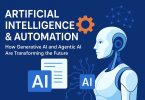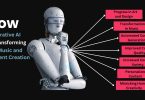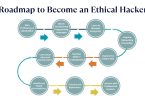Narrow AI, additionally regarded as weak AI, is designed to operate a precise mission or set of tasks. While it has many potential benefits and has already demonstrated impressive capabilities, there are also some potential threats associated with its execution. Here are some of the main threats of artificial narrow intelligence:
- Job Displacement: One of the most immediate threats from executing narrow AI is its potential to displace workers in the industries where it is used. This is because machines can perform tasks faster and more accurately than humans, which can lead to job losses and economic disruption.
- Bias and Discrimination: Another threat of narrow AI is that it may perpetuate and even amplify existing biases and discrimination. This occurs because the algorithms used to train these systems might rely on biased datasets or harbor implicit biases that their creators may not recognize.
- Lack of Human Oversight: Artificial narrow intelligence systems might operate with minimal human intervention, potentially causing unintended consequences when faced with situations beyond their capabilities. Without proper human oversight, these systems may make mistakes or take actions that have negative consequences.
- Security Vulnerabilities: As narrow AI systems become more prevalent, they become an attractive target for hackers and other bad actors. This can lead to security breaches that compromise sensitive data and potentially cause harm.
- Unintended Consequences: Finally, there is a risk that narrow AI systems may have unintended consequences. This is because they’re designed for specific tasks, and their interactions with the world might be unpredictable. Without careful design and testing, these systems may cause unintended harm.
To mitigate these threats, ensuring that narrow AI systems are designed with ethics and safety in mind is crucial. This includes using diverse and representative data sets to train the algorithms, providing adequate human oversight, and implementing safeguards to prevent unintended consequences. It is also important to ensure that there is transparency and accountability in the use of narrow AI systems.








Leave a Comment